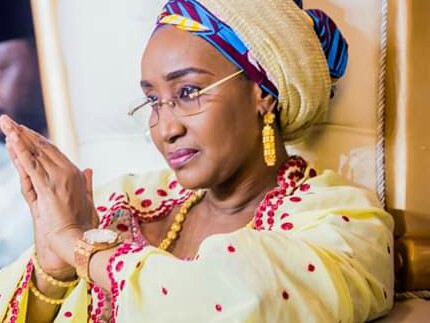
The Federal Government has commenced the disbursement of N5000 to over 1millioin indigents across the country.
The disbursement came following the directive by President Muhammadu Buhari that the conditional cash transfers for the next two months be paid immediately to beneficiaries.
The disbursement was done on Wednesday in Kwali Central Area Council of FCT by the Minister of Humanitarian Affairs, Disaster Management and Social Development, Hajiya Sadiya Farouq.
The Minister disbursed N20,000 as payment for four months to over 190 beneficiaries at the payment point in Kwali.
The beneficiaries were handed their stipends after their payment cards were verified and scanned by government-approved mobile money operators.
Speaking during the disbursement, the minister said: “The exercise commenced about five years ago and it is geared towards supporting the poor and vulnerable households of our society.
“We give them monthly stipends of N5000 every month and now that we have these restrictions, Mr. President has directed that we give them two months advance payment and we are here today to carry out that directive of paying the two months advance payment.”
On the number of beneficiaries, Farouq said: “We have over a million people across the country. For the FCT and this particular area Council, we are giving about 5000 households in this area.”
On how the beneficiaries were identified, she said: “It is a very long process and many people like religious leaders, community leaders, and different groups all came together to identify the poorest and vulnerable households in their community.”
On the claim that the beneficiaries were members of a particular political party, she said: “It is untrue and you can confirm from the beneficiaries of the process of selection.”
Also speaking, the National Programme Coordinator for the Conditional Cash Transfer Programme, Dr. Temitope Sinkaiye said the additional 1million beneficiaries would be added to the programme before the end of the year.
Explaining how the programme works and how it has impacted beneficiaries, Sinkaiye said: “The process of identification is a long process that involves community members themselves identifying those who are poor and vulnerable in their sight. So, the team moves from community to community and the community members determine what poverty means in their village and those who fall within their definition of poverty.
“Here, we are not talking about book or academic definition, we are talking of community members themselves deciding what poverty means and then identify people who by their perception fall into the category and then we collect the names from the community.”
On the impact of the cash, she said: “It has improved their livelihoods because they are now able to send their children to schools, they can feed with a better diet, they can attend clinics and for some communities where water is their problem, they have dug wells and renovated health centres. Some communities have also put up a classroom for their children because the children used to go to neighbouring communities to access education.
“Beyond the money, this programme also trains them on how to be self-sustaining, how to take care of their hygiene, we teach them on nutrition, environmental sanitation, and others. So, it is a full package for the households.”
On the number of people that have benefitted from the programme, she said: ‘The number of people currently on our register is 1.2million and we are going to enroll into the programme, another 1million for this year.”
By Faith Yahaya












